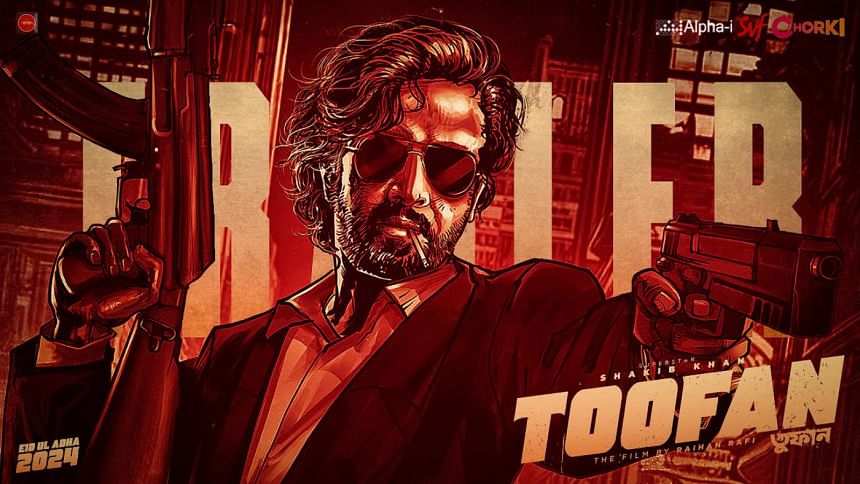'Toofan' recovered its investment in Bangladesh within days, unlike Bollywood films: Raihan Rafi

Following the release of "Toofan", in West Bengal, India, Bangladeshi director Raihan Rafi sat down with Anandabazar Online to discuss the film's success, the cross-border film industry, and the future of Bengali cinema.
"Toofan", which broke box office records in Bangladesh, has now been released in India. Rafi emphasised that the film was crafted with a straightforward narrative to resonate with the majority of Bengali viewers — describing it as having a blend of popular elements akin to films like "KGF" and "Pushpa".

Despite receiving some criticism from film reviewers, Rafi acknowledged the challenge of satisfying both critics and mainstream audiences. "Making everyone happy is tough, but we aim to improve with each project," he stated.
"Where Bollywood films struggle to do well in Bangladesh, despite being big-budgeted, we recovered our investment in 'Toofan' within 10-15 days. This is remarkable and it indicates there is still a demand for commercial films," said Rafi expressing his optimism about the growing appeal of Bangladeshi films, highlighting the incremental steps necessary for achieving success.

Rafi further revealed that three sequels to "Toofan" are planned, with the announcement of the second instalment coming soon.
"I believe Bangladeshi films will attract more audiences in West Bengal in the future. Records aren't set in a day; with small steps, success will come," the filmmaker said.
Discussing the obstacles faced by Bangladeshi filmmakers, Rafi pointed out the difficulties in accessing advanced technology and equipment. Unlike India, where filmmakers can easily source cameras from Mumbai, Bangladeshi filmmakers face bureaucratic hurdles such as visa requirements for equipment. For "Toofan", obtaining permits for 150 prop guns was particularly challenging, necessitating clearances from customs and ministries in both countries.

Addressing the sudden halt of the OTT platform Chorki's operations in West Bengal, Rafi clarified that there was no problem with Chorki itself, "The issue stemmed from industry regulations requiring higher wages for foreign film crews, which made it difficult for Bangladeshi productions to be considered 'international' and afford the higher costs."
Rafi appealed to the leaders of the Kolkata film industry to reconsider these regulations to foster better cross-border collaboration.

When asked about his streak of delivering blockbuster hits with "Poran", "Surongo", and now "Toofan", Rafi humbly credited his success to luck and maintained that he strives to avoid being pigeonholed into a specific formula. He expressed his belief that a hit film benefits everyone involved — from the crew to vendors outside the cinema — and urged audiences to continue supporting Bengali cinema.

 For all latest news, follow The Daily Star's Google News channel.
For all latest news, follow The Daily Star's Google News channel. 









Comments